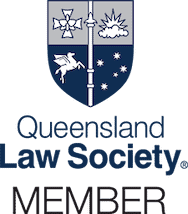Case note: Evans v Williams [2018] QDC 210
A 51 year old kitchenhand, Ms Marie Evans, was injured while executing a right hand turn, when a vehicle coming in the opposite direction collided with the front of her car. She received $42k as a payout for a back, hip and psychiatric injury.
The accident happened in September 2015 and the compulsory third party insurer for the vehicle at fault, Allianz Australia Insurance Ltd, admitted liability for the circumstances of the accident.
Facts
Ms Evans sought damages for a musculo-ligamentous injury to her lumbar spine, bilateral hip injuries and a psychiatric injury as a result of the accident.
Ms Evans was born in Mauritius, educated to grade 11 and came to Australia in 1986. She had a number of jobs in her working life and it was only when her children were growing up that she was unable to maintain steady employment. Ms Evans returned to work the day after the accident but called in sick the following day because her pain ‘was getting really bad’. Her evidence was that there had been no time following the accident when she felt ‘completely free of pain’.
Her first attendance with a medical practitioner after the accident was on 4 March 2016, when she consulted a general practitioner about problems with her left ear. There was no complaints of back or hip pain during that attendance.
Ms Evans did not tell her employer (RSL Care) about the motor vehicle accident at that time because she was afraid of losing her job, however, she adjusted her work hours to start work early and finish a little later at times.
On 28 April 2016, Ms Evans resigned from her employment. Her letter of resignation did not make reference to issues relating to her back or hip. In the fortnight prior to her resignation, Ms Evans worked a 76 hour fortnight.
She first sought treatment for lower back pain on 13 May 2016, over eight (8) months after the accident. The entry in the general practitioner’s notes noted, ‘[n]o preceding trauma’. Ms Evans had an attendance with another general practitioner on 8 June 2016, at which time hip pain was reported. The clinical notes noted that her symptoms had been ongoing for, ‘the last year or so’ and stated that Ms Evans, ‘[d]id heavy lifting for a long time’.
The symptoms experienced by Ms Evans were not linked to the subject accident until after she attended with her solicitors on 8 September 2016. On 16 September 2016, almost one (1) year after the accident, a doctor with whom she attended linked the lower back pain to the motor vehicle accident.
Following her resignation from RSL Care, Ms Evans secured employment with the Logan City Council and after that, received Centrelink benefits for a short period of time, before commencing employment with her current employer, Homelife.
Expert evidence
Ms Evans relied upon the expert opinions of Drs Shaw (Orthopaedic Surgeon) and De Leacy (Psychiatrist). The Defendants relied upon the opinions of Dr Boys (Orthopaedic Surgeon) and Professor Whiteford (Psychiatrist).
Dr Shaw assessed Ms Evans as suffering a 6% whole person impairment (WPI) under AMA5 and Dr Boys assessed her as suffering a 5% WPI. Dr Shaw accepted at trial that if, in truth, the back and hip pain arose nine (9) months after the motor vehicle accident, it was, ‘very, very unlikely’ that the pain was related to the accident. Dr Boys did not relate the hip injury to the accident. As to her back pain, Dr Boys was of the view that she could have experienced temporary back pain which resolved and then symptoms related to her degenerative back condition when she sought treatment in May 2016.
Psychiatrists Professor Whiteford and Dr De Leacy assessed Ms Evans as suffering a 4% and 5% PIRS rating respectively. Professor Whiteford diagnosed Ms Evans as suffering from an Adjustment Disorder with depressed mood. Dr De Leacy diagnosed an Adjustment Disorder with mixed anxiety and depressed mood. Both accepted that if the motor vehicle accident did not cause a physical condition, then any psychiatric condition would not be related to the accident.
Judgment
Justice Jarro doubted the reliability of some of Ms Evans’ evidence regarding the extent of her accident related injuries and the sequelae arising from it, however, he was not prepared to reject the entirety of her claims.
The lack of contemporaneous medical reporting and reporting to Ms Evans’ employer, RSL Care (notwithstanding her reason for doing so) was given considerable weight in the judgment. Justice Jarro was not satisfied that these deficiencies could be ameliorated by lay witness accounts of Ms Evans’ demeanor or presentation pre-accident versus post-accident.
In Justice Jarro’s reasons, he highlighted a statement by Justice Gotterson in Edington v Board of Trustees of the State Public Sector Superannuation Scheme [2016] QCA 247 at 57 on causation:
This submission employs the assumption that because an event occurs after another, that event must have been caused by the other. Reasoning on the basis of such an assumption, as the appellant does here, is flawed logic. The flaw is deepened when the reasoning is sought to be used to exclude any other preceding event from having had a causal relationship with the event which occurs later in time.
Ms Evans was awarded damages as follows:
General Damages – $15,750
Past Economic Loss – $103
Interest on Past Economic Loss – $4.14
Past Loss of Superannuation – $9.53
Future Economic Loss – $20,000
Future Loss of Superannuation – $2,200
Past Special Damages – $1,773.08
Interest on Past Specials – $24.52
Future Special Damages – $2,500
Total – $42,364.27
Payout for a back, hip and psychiatric injury
Ms Evans was awarded damages as follows:
General Damages – $15,750
Past Economic Loss – $103
Interest on Past Economic Loss – $4.14
Past Loss of Superannuation – $9.53
Future Economic Loss – $20,000
Future Loss of Superannuation – $2,200
Past Special Damages – $1,773.08
Interest on Past Specials – $24.52
Future Special Damages – $2,500
Total – $42,364.27
Considerations
This judgment will be of interest to insurers and personal injury lawyers. It highlights the importance of considering the following matters in claims for personal injuries:
- when and what injuries are reported to medical practitioners and employers;
- letters of resignation given by plaintiffs to employers following an accident;
- the timing of a plaintiff’s initial attendance with their solicitors on a claim in the context of the medical evidence at that time;
- the stated cause of alleged accident related symptoms at all medical attendances;
- the questions which are likely to be put to expert witnesses at trial in cases of late reporting;
- whether lay evidence is likely to be of assistance in addressing late reporting of symptoms by plaintiffs.
Can we help with a payout for injuries?
Book a consultation to discuss a motor vehicle accident by calling 07 3067 3025 or completing the online enquiry form below.





